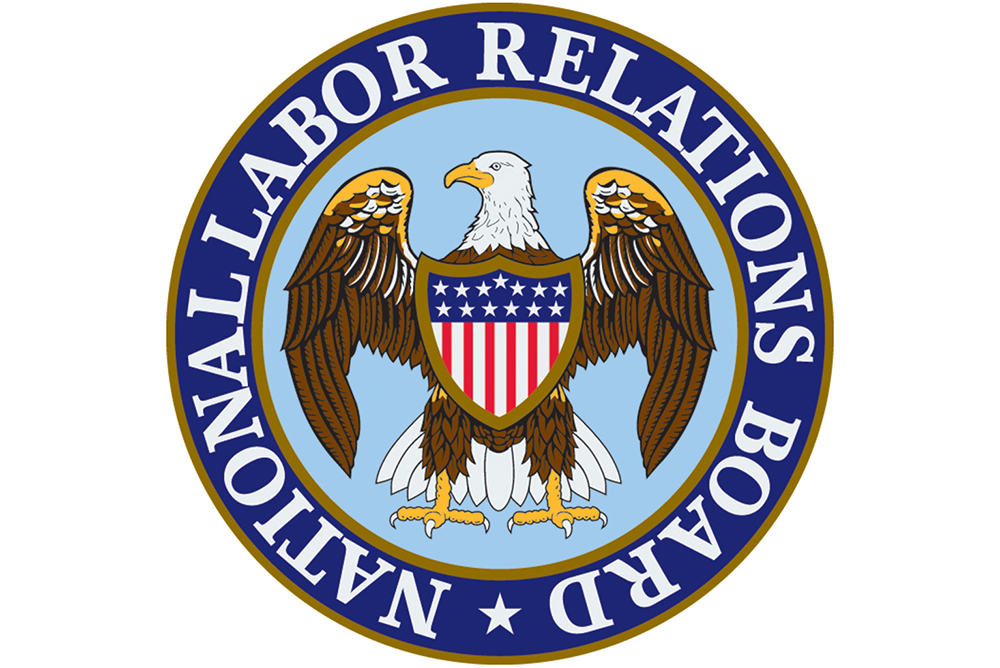The National Labor Relations Board (NLRB) has released a new report, concluding that its ethics program for Board member recusals is “strong, effective, and fully compliant with all applicable government ethics requirements.”
 That characterization was included in a letter presented as part of the report. In the letter, NLRB Chairman John F. Ring also noted the Board’s review of its ethics program “identified some potential gaps or areas for improvement” in its recusal procedures.
That characterization was included in a letter presented as part of the report. In the letter, NLRB Chairman John F. Ring also noted the Board’s review of its ethics program “identified some potential gaps or areas for improvement” in its recusal procedures.
The ethics review was prompted by controversy over whether Board member William J. Emanuel should have recused himself in the Hy-Brand decision, which established a more employer-friendly definition of joint employment than was set by the Obama-era Board’s 2015 Browning-Ferris decision. Because of complaints from members of Congress and others that Emanuel should have recused himself, the Board in February 2018 vacated the Hy-Brand decision, thereby returning to the more employee-friendly definition of joint employment set in Browning-Ferris.
Critics of the Hy-Brand decision said Emanuel should have recused himself in Hy-Brand because his former law firm—Littler Mendelson, a large firm that represents management in employment law cases—was involved in the Browning-Ferris decision.
Burton J. Fishman, an attorney with Fortney & Scott, LLC, in Washington, D.C., notes that what happened in Hy-Brand was unprecedented—“a post-facto objection leading to a post-facto review and a post-facto determination that a recusal should have happened, even though Member Emanuel was cleared to hear the case. Fishman says the reversal of Hy-Brand that led to the ethics review and the new report was “an undisguised effort to use overtly political pressure to influence the outcome of an overtly political case.”
Meaning for Employers
As to what the report on the ethics review means for employers, Fishman says he’s not sure. It seems that it should lead to broader participation of current Board members on pending joint employer decisions and regulations, but he’s not certain that is the case.
“I have always thought that raising ‘status’ objections rather than ‘specific issue’ objections was a dangerous approach,” Fishman says. “If working at Littler can bring recusal, what does working for a union or a union-supporting firm imply?”
Fishman points out that Wilma Liebman, who was NLRB chair from January 2009 through August 2011 during the Obama administration, took the NLRB post after a career as a lawyer for unions and no one sought her recusal from cases involving unions.
If Democrats continue to call for the Republican-appointed members to recuse themselves, the same rationale could be used to call for Democrat-appointed members to recuse themselves when they hold the Board majority, leading to what Fishman calls “a circular firing squad.”
‘Strong Protections’
The report of the ethics review explains the steps the Board took to ensure confidence in its procedures, including consulting with the Office of Government Ethics and benchmarking with other federal agencies.
A statement from the Board says the report “details the findings and recommendations of the review, including the conclusion that the NLRB’s current practices for identifying conflicts, establishing screening procedures, and obtaining advice from the Designated Agency Ethics Official provide strong protections against conflicts of interest in the Board’s adjudicative and rulemaking responsibilities.” The report also says the Board has approved changes to address areas for improvement.
In addition, the report includes a minority statement from the only Democrat on the current Board, Lauren McFerran. Among other points, she called on the Board to “strive for maximum transparency to the public, to the federal courts, and to the Office of Government Ethics.”
The new report may not end calls for Board members to recuse themselves on cases in the future. Fishman says he expects more calls for recusal, but he doesn’t think the calls will yield many more recusals. The presence of a minority statement as part of the report indicates that there is continuing dissent, he says.
Tammy Binford writes and edits news alerts and newsletter articles on labor and employment law topics for BLR web and print publications.
